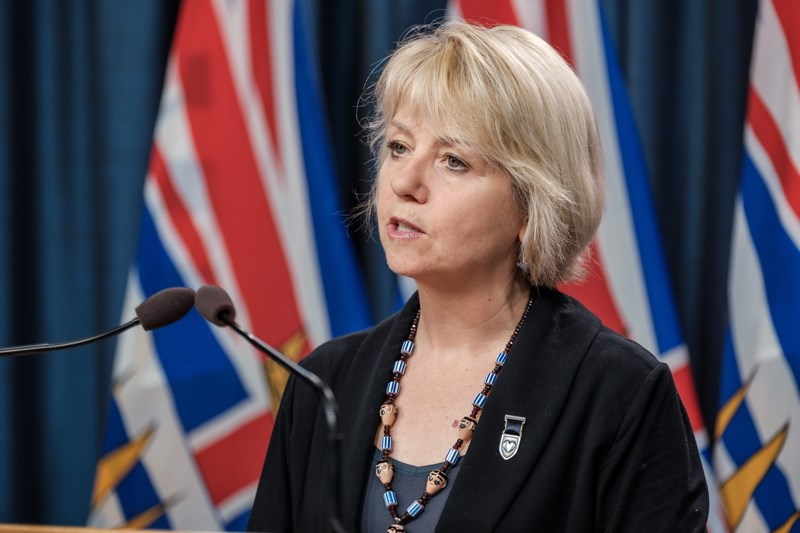While the number of new cases of COVID-19 continue to trend down in B.C., the pandemic remains a “major problem” throughout the world, says B.C.’s provincial health officer.
“I’m very grateful that in recent weeks our numbers of new cases here in British Columbia, continue to trend down, and to be low,” said Dr. Bonnie Henry, adding that the province has been able to trace contacts of new cases quickly.
Ten new cases of COVID-19 in B.C. were announced on Tuesday.
There have been 2,669 confirmed cases in the province to date. Of those, 183 are active cases. Sixteen people are in hospital. There have been 167 deaths linked to the virus, and 2,319 people have recovered.
The Island Health region has had a total of 130 cases, but no new cases have been confirmed in weeks, and there are no known active cases. There have been 908 cases in the Vancouver Coastal region, 1,370 in Fraser Health, 195 in Interior Health, and 66 in Northern Health.
As was the case on Monday, no new deaths were reported on Tuesday.
This is not the same trend in the rest of the world.
Monday saw the highest number of new cases recorded in single day — more than 136,000 globally — since the pandemic was declared, Henry said.
“I want everyone to understand that the COVID-19 pandemic around us is far from over,” she said. “The global case count continues to rise, and many regions are facing a resurgence in cases as they’ve taken measures to open up, including regions that are very close to us in the United States.”
Almost seven million cases of COVID-19 have been reported to the World Health Organization, and almost 400,000 deaths. In the countries showing positive cases, complacency is the biggest threat, according to the organization.
No matter what country the pandemic is raging in, “we are all connected,” Henry said.
“We know from several months ago that it matters to us when something like this happens in China,” she said. “It matters to us when something happens in Italy, in Spain. It matters to us when it happens in the United States and here in Canada.”
With international flights increasing, U.S. border restrictions easing to allow families separated by the pandemic to reunite, and schools and businesses opening, “our goal needs to be to learn to live safely with this virus to protect ourselves as much as possible,” she said.
Henry again urged people to wash their hands regularly, minimize close contacts, stay home and away from others if unwell, get tested if experiencing symptoms related to COVID-19 and keep safe social interactions — smaller numbers, bigger spaces and wear a mask if unable to physically distance.
Henry said she was disappointed by the lack of physical distancing and adherence to a provincial health order capping gatherings to 50 people at anti-racism protests over the weekend.
In Victoria, thousands gathered at Centennial Square on Sunday for a Black Lives Matter rally. While many wore masks, the size of the crowd made it impossible for most to maintain a distance of two metres from strangers.
“I know there are very effective ways for small groups of people to demonstrate these important issues, and to do it peacefully and to do it safely,” Henry said. “And I encourage people to find those ways.”
Henry said her colleagues in some U.S. states are additionally concerned that attempts to shut down large protests — using tear gas to disperse crowds, for instance — “can provide an environment that would allow this virus to transmit and we are starting to see increases in some states that are very worrisome.”
She urged people not to become complacent.
“We have not seen a case, thankfully, on Vancouver Island for some time, but that doesn’t mean that we are free of risk because we know there needs to be movement back and forth to this Island to support essential services for a variety of reasons and . . . when there’s virus anywhere, there’s virus risk everywhere.”



